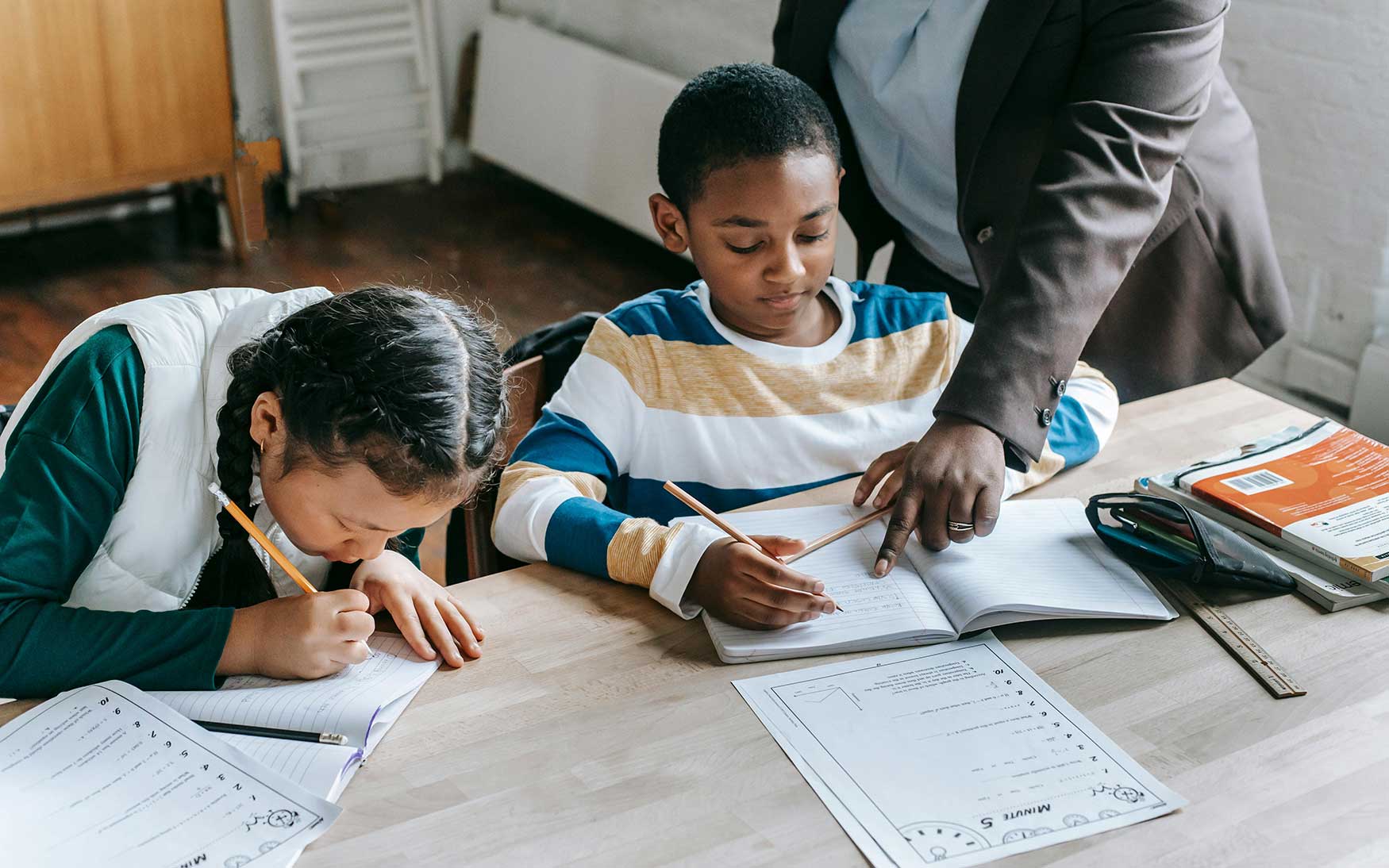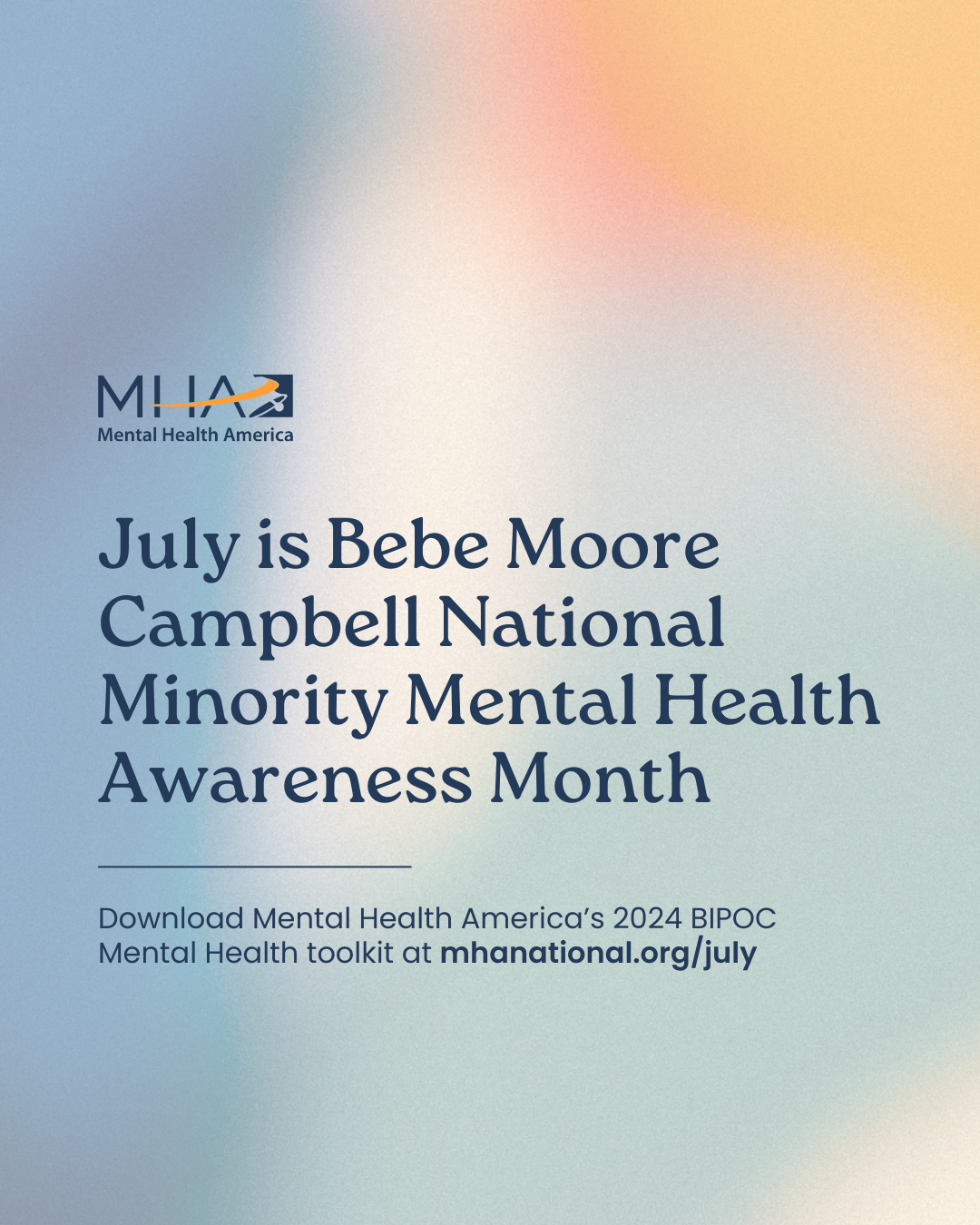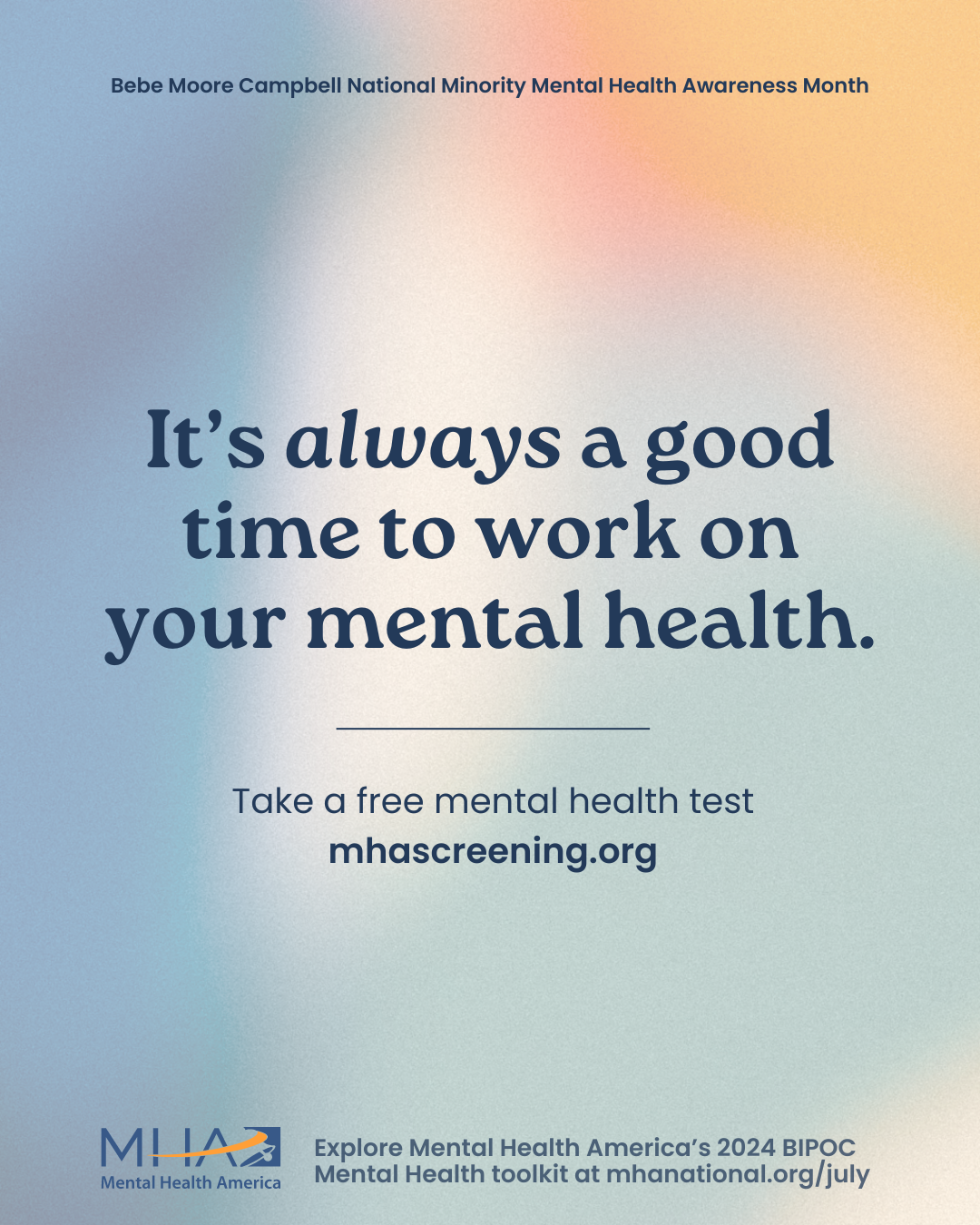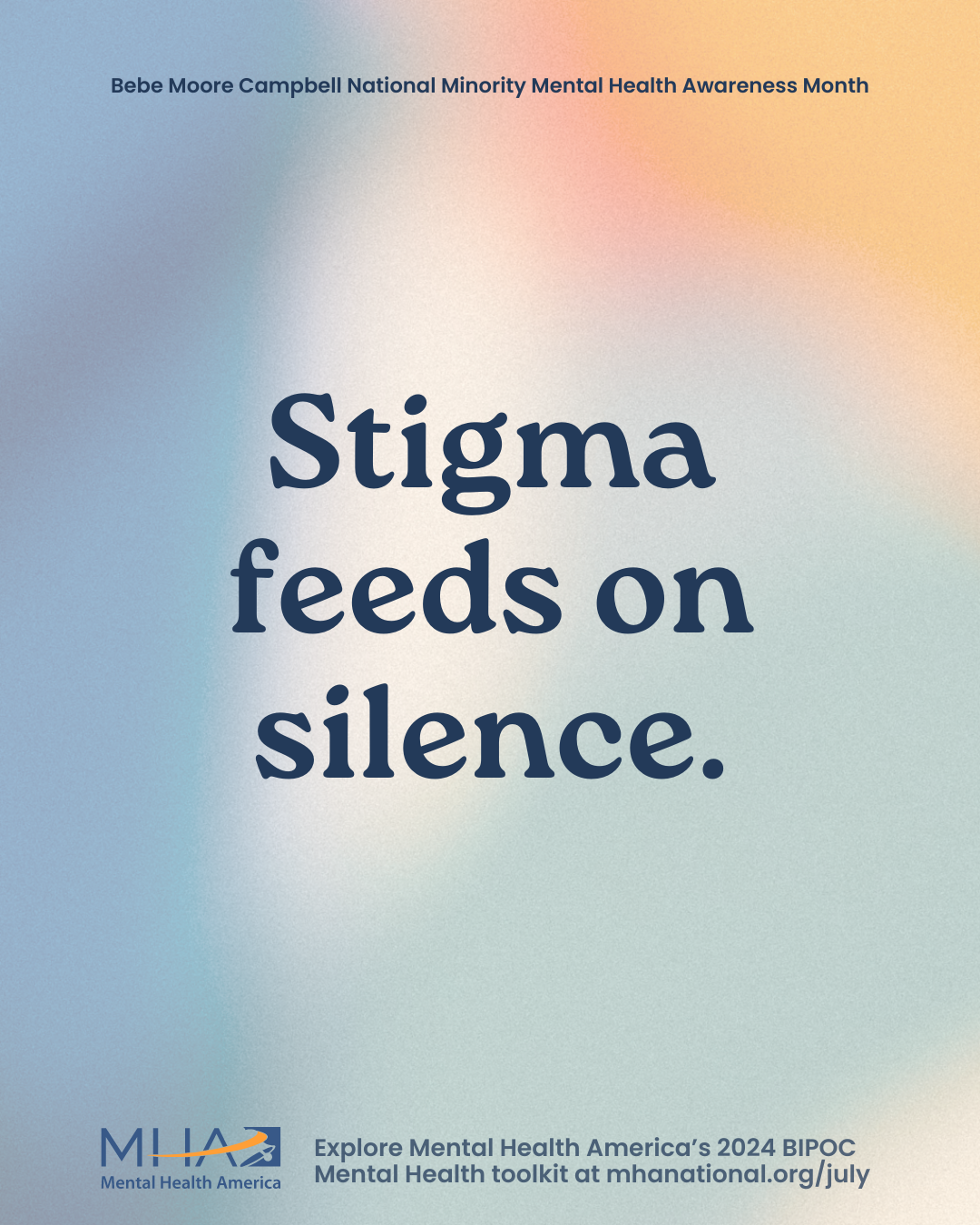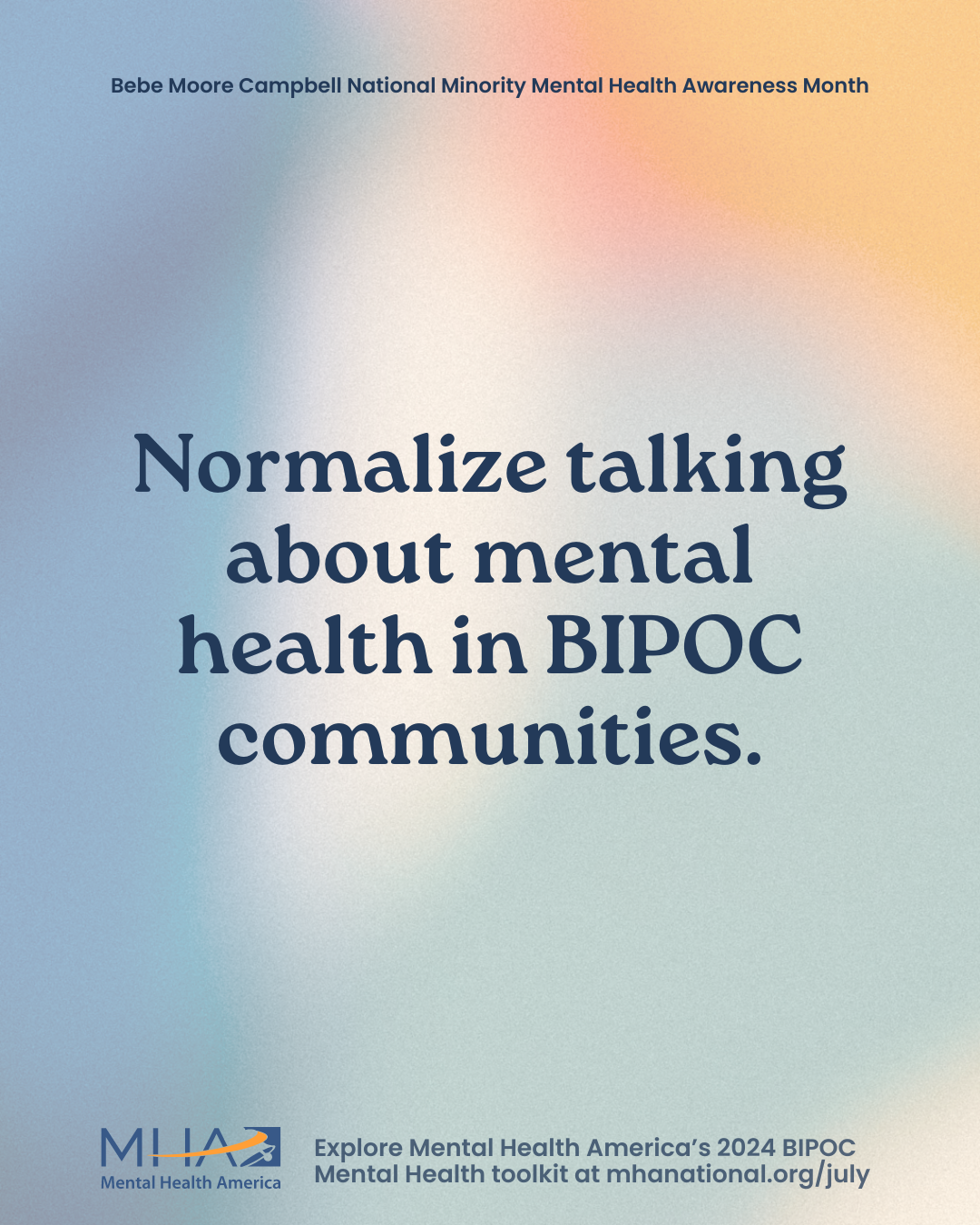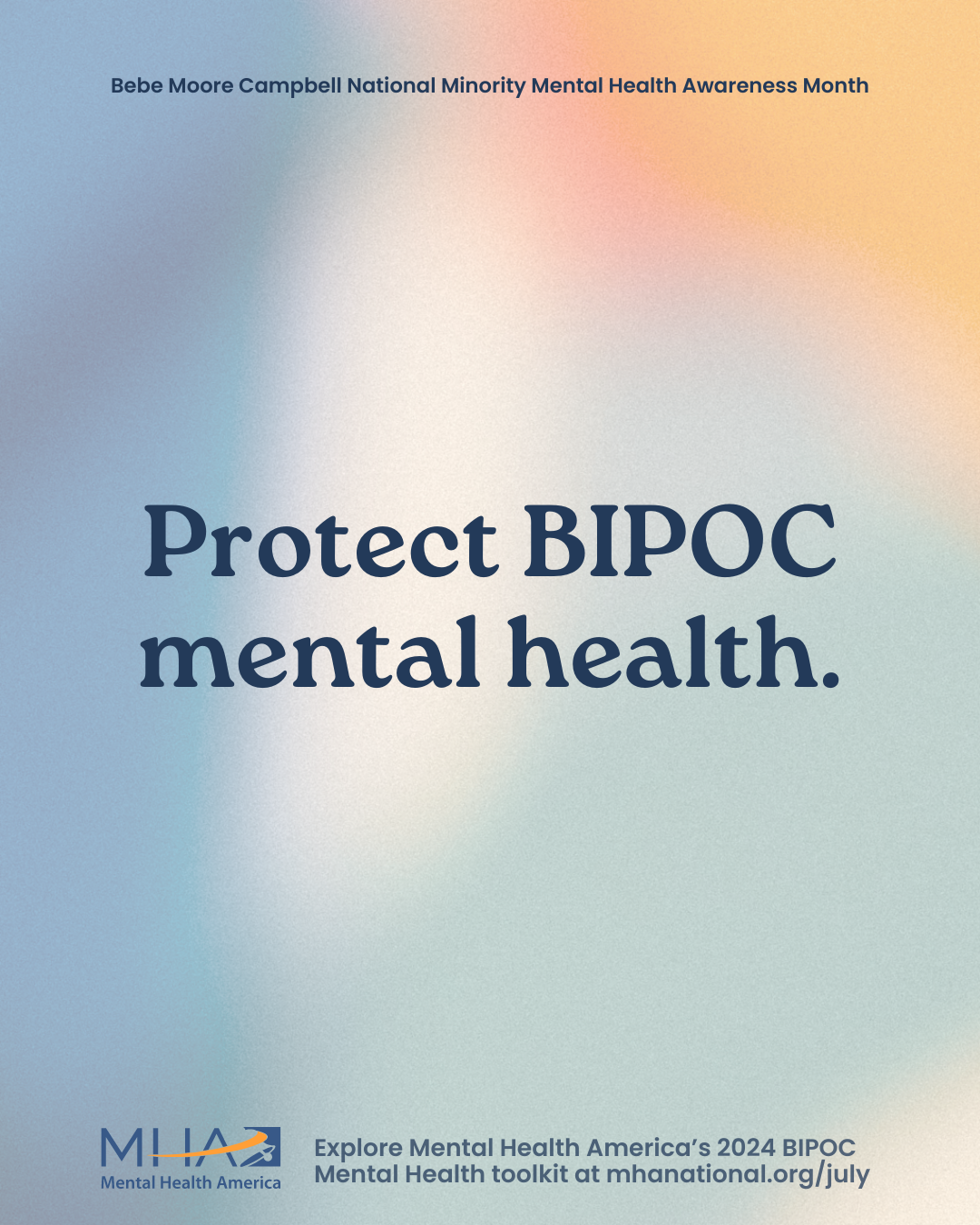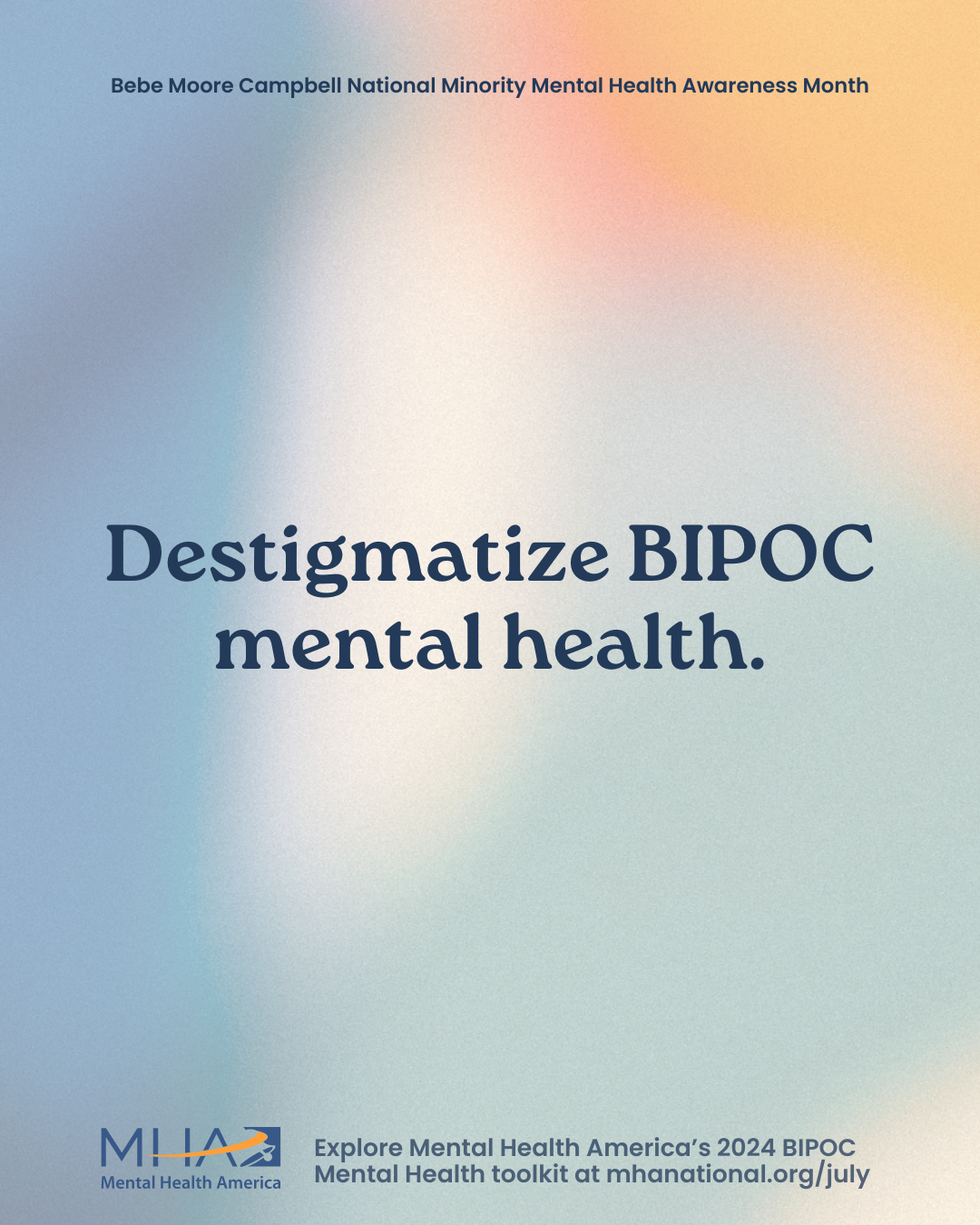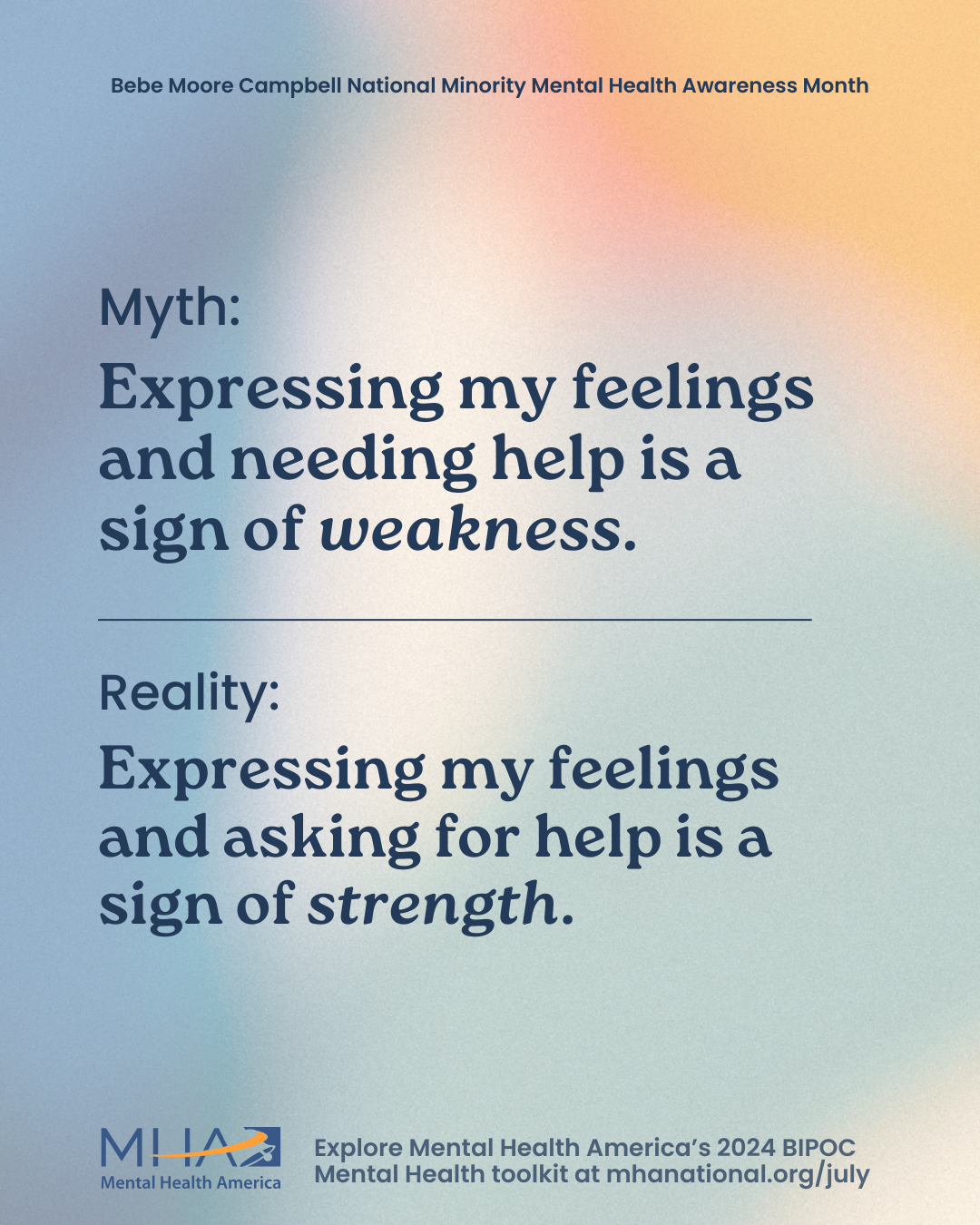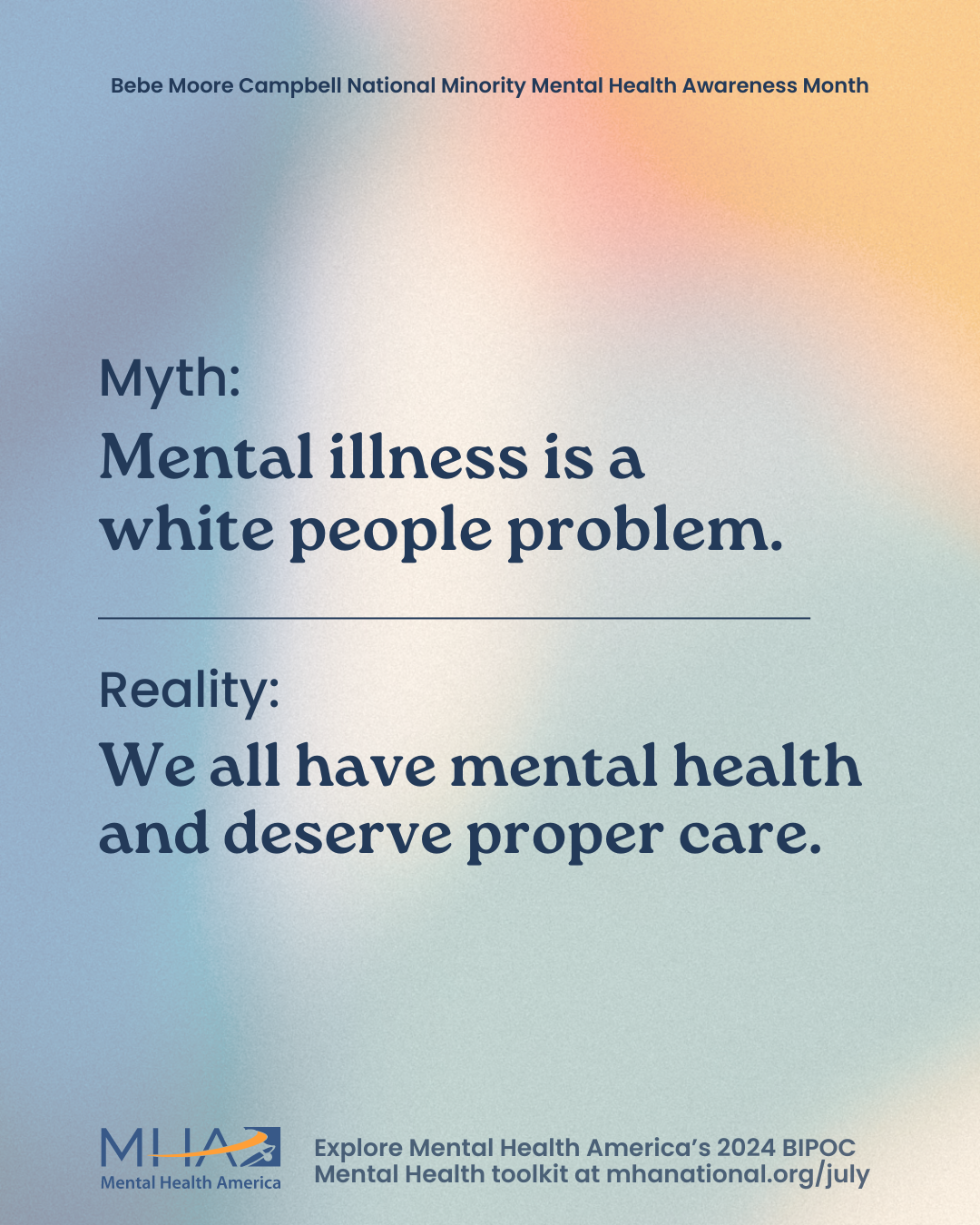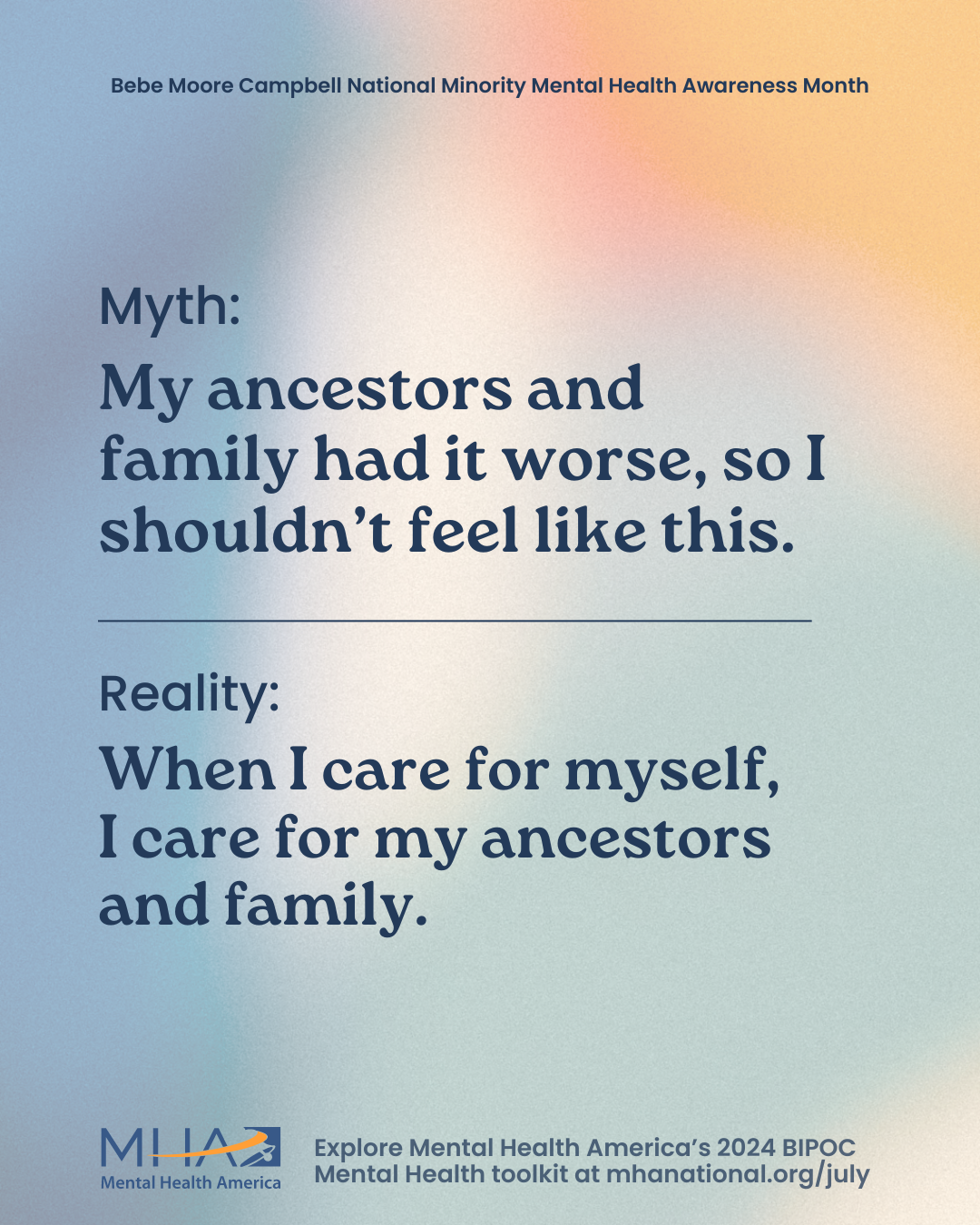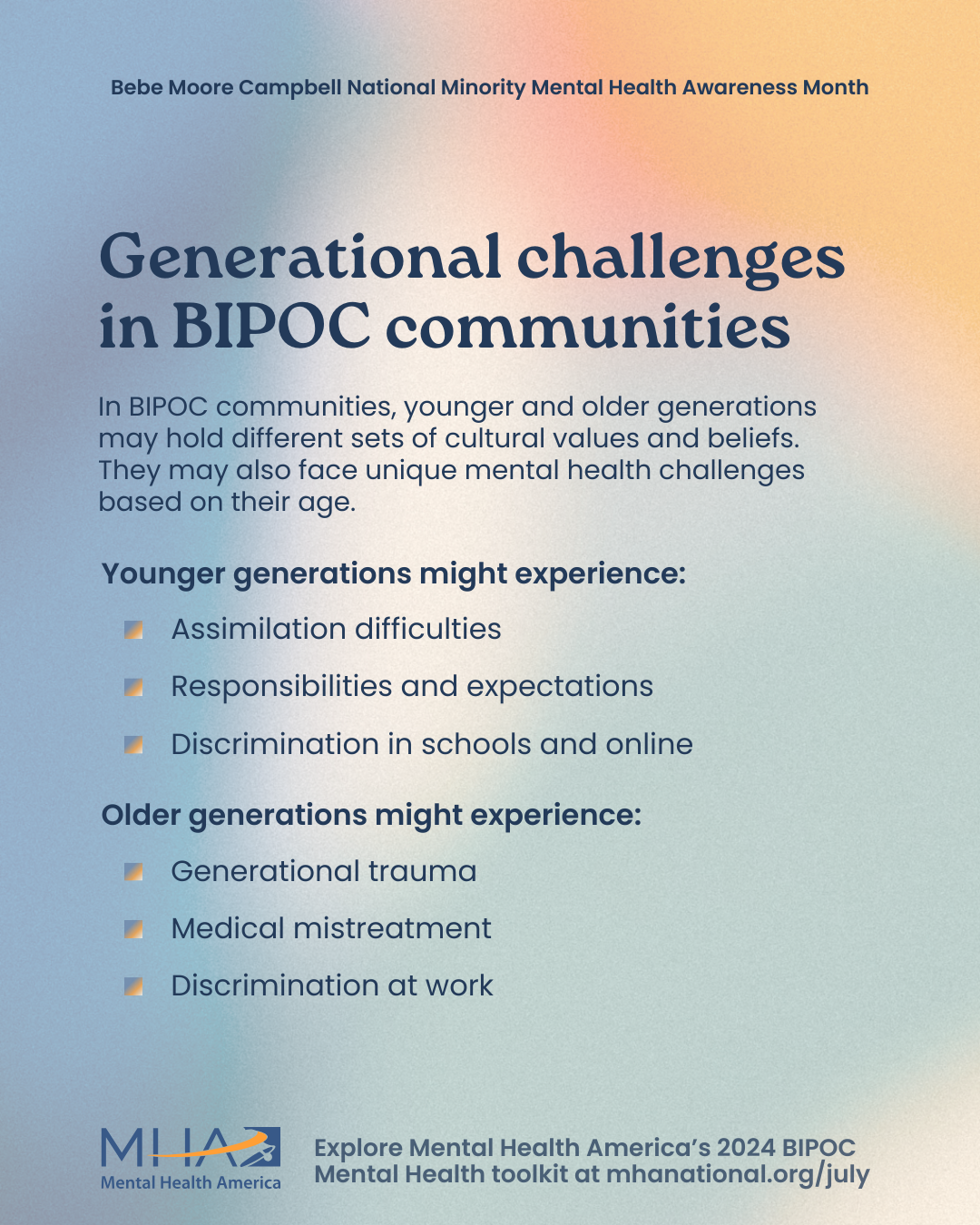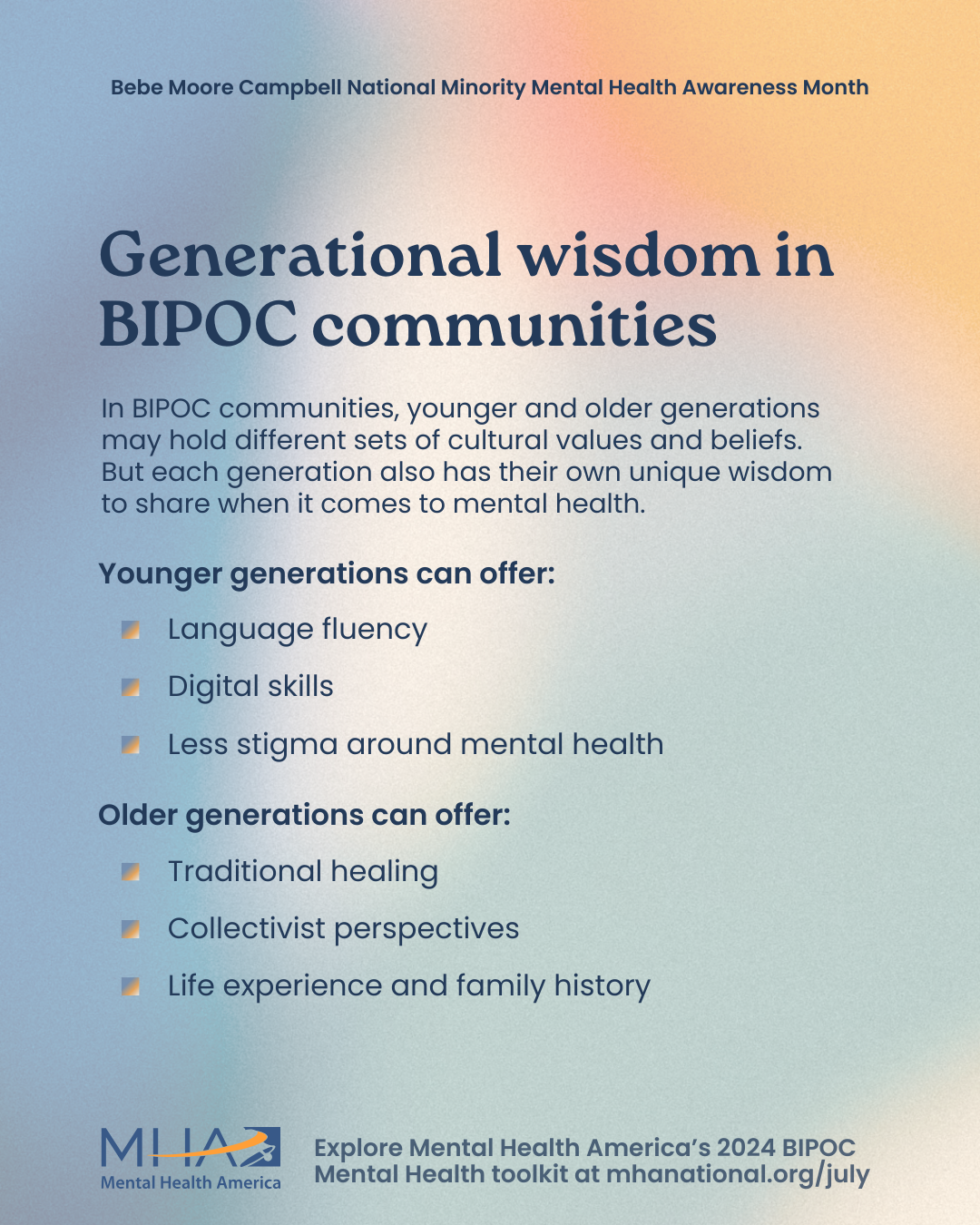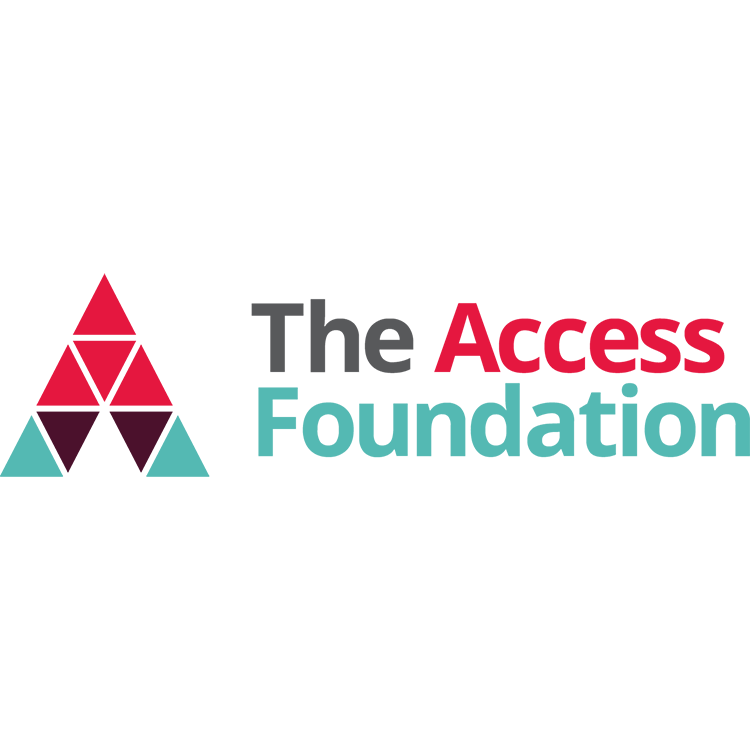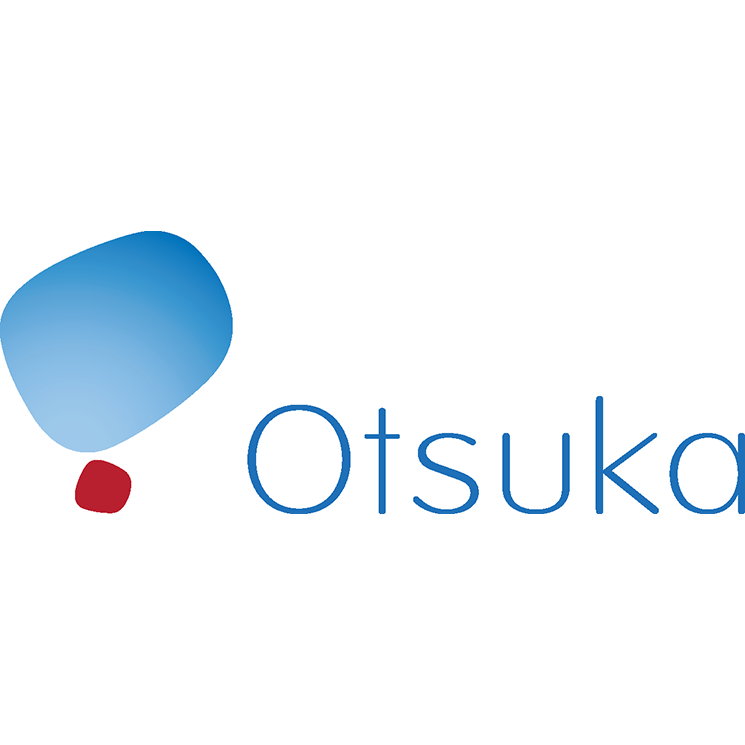BIPOC Mental Health Month
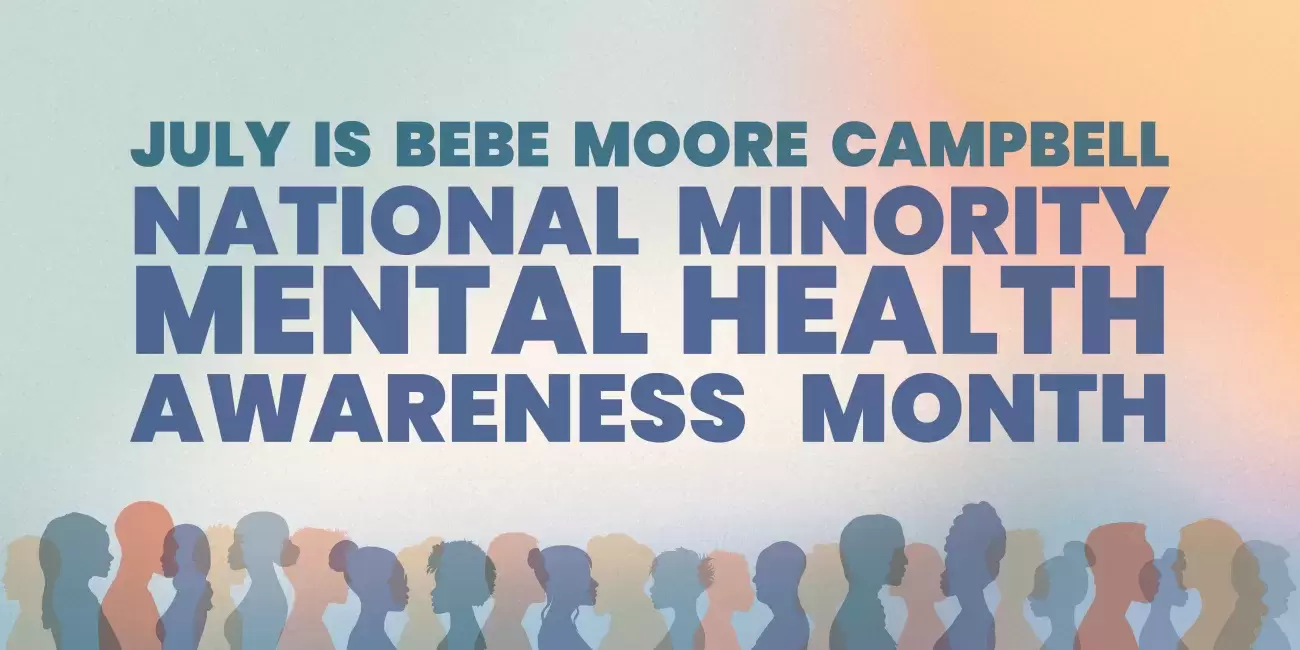
Each July, we honor the legacy of author, advocate, and trailblazer Bebe Moore Campbell by recognizing Bebe Moore Campbell National Minority Mental Health Awareness Month. Moore Campbell's ability to tell impactful stories highlighting themes of racism, mental health, and family left a lasting mark on this world and is a foundation for much of the work that continues in support of Black, Indigenous, and people of color (BIPOC) mental health.
Download the BIPOC Mental Health Toolkit
Mental Health America's 2024 BIPOC Mental Health Toolkit provides free, practical resources to help navigate mental health stigma, bridge generational differences, dismantle mental health myths, and encourage meaningful conversations.
Learn more about BIPOC mental health
Culture, ethnicity, and race all play a role in the way that each person experiences the world. These factors, among others, have profound effects on mental health, especially for Black, Indigenous, and people of color (BIPOC). MHA's BIPOC Mental Health Resource Center helps you learn more about the strengths and challenges communities of color face when it comes to mental well-being and mental health care.
New content
BIPOC mental health myth-busting
BIPOC voices
Welcome to Bebe Moore Campbell National Minority Mental Health Awareness Month
My intake nurse was judging me | Reina's mental health story
I had to be perfect | Leland's mental health story
I had to be perfect | Leland's mental health story
There's a lot of myths floating around | Future's mental health story
The person I am today was born | Lanee's mental health story
Breaking mental health stigma in BIPOC communities
Talking about mental health in BIPOC communities
Generational mental health differences in BIPOC communities
Graphics and shareables
Using graphics or messaging in your day-to-day communications is a great way to raise awareness about BIPOC mental health throughout the month. We've created sample text and graphics to make it easy for you.
Don't forget to tag us!
IG @mentalhealthamerica | X: @mentalhealtham
Facebook: mentalhealthamerica | LinkedIn: mental-health-america
Sample text
- July is Bebe Moore Campbell National Minority Mental Health Awareness Month. Learn more about BIPOC mental health at mhanational.org/july.
- Download Mental Health America’s #BIPOCMentalHealth toolkit to learn about mental health in BIPOC communities: mhanational.org/july.
- The 2024 #BIPOCMentalHealth Toolkit is now available! Celebrate Bebe Moore Campbell National Minority Mental Health Awareness Month by downloading your free copy at mhanational.org/july.
- Looking for #BIPOCMentalHealth resources? Check out Mental Health America’s BIPOC Mental Health Resouce Center at mhanational.org/bipoc.
- This July, join us in honoring the memory of Bebe Moore Campbell, an American author, journalist, teacher, and mental health advocate who worked to shed light on the mental health needs of the Black community and other underrepresented communities. mhanational.org/bebemoorecampbell.
- Expressing your feelings and needing help is not a sign of weakness - it’s a sign of strength. Learn more about stigma and mental health myths in the BIPOC community at mhanational.org/july.
- Myth: Mental illness is a white people problem.
Reality: We ALL have mental health and deserve proper care.
Learn more about BIPOC mental health at mhanational.org/bipoc. - Stigma feeds on silence. In honor of Bebe Moore Campbell National Minority Mental Health Awareness Month, Mental Health America has tools to help you break down stigma around #mentalhealth in BIPOC communities. Learn more at mhanational.org/july.
- Storytelling is one of the most effective ways to fight mental health stigma in BIPOC communities. When people who live with a mental health condition share their stories, it can help others feel less alone and reduce shame. #BIPOCMentalHealth
- Different generations in #BIPOC communities may face unique mental health challenges, but all age groups have unique wisdom to share. Learn more about sharing generational wisdom at mhanational.org/july. #BIPOCMentalHealth
- The first step in navigating your wellness journey is to check in on yourself. Take a free #mentalhealth test at mhascreening.org. #BIPOCMentalHealth
- Taking a mental health test is one of the easiest ways to check in on your #mentalhealth. Get screened at mhascreening.org. #BIPOCMentalHealth
- If you or someone you know is struggling or in crisis, help is available. Call or text 988 or chat 988lifeline.org. You can also reach Crisis Text Line by texting HELLO to 741741.
Hashtags
- #BIPOCMentalHealth
- #BebeMooreCampbell
Links
Take a Mental Health Test
Online screening is one of the quickest and easiest ways to determine whether you are experiencing symptoms of a mental health condition.
This campaign is supported by contributions from The Access Foundation and Otsuka America Pharmaceutical, Inc.



